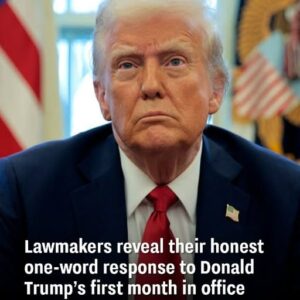President-elect Donald Trump has made his stance clear, voicing strong opposition to House Speaker Mike Johnson’s proposed spending bill. As the government faces a looming shutdown on December 21 without an approved funding measure, the pressure is mounting in Congress to avert a crisis. Johnson, alongside the Republican-controlled House, is working feverishly to push through a continuing resolution (CR) to keep the government running. However, Trump’s sharp criticism of the bill has added another layer of complexity to an already contentious process.
A Funding Crisis Looms
The current impasse revolves around a temporary funding bill, known as a continuing resolution, designed to maintain government operations until March 14. The nearly 1,500-page document aims to buy lawmakers more time to negotiate a long-term budget deal. However, Trump and some conservative allies have lambasted the bill for what they see as excessive spending and a lack of fiscal responsibility.
In typical Trump fashion, the President-elect took to his Truth Social platform to voice his concerns, calling the proposed legislation a “betrayal” of Republican principles. He accused Johnson and House Republicans of caving to Democrats and criticized the bill’s length and scope, arguing it is filled with wasteful expenditures.
“Another massive spending bill full of pork and giveaways,” Trump wrote. “The American people deserve better. We need leaders who fight for fiscal responsibility, not ones who cave to the radical left.”
Johnson’s Balancing Act
Speaker Johnson, who has only recently taken over the gavel, finds himself in a precarious position. As the leader of the Republican-controlled House, he must navigate between two often-conflicting factions within his party: hardline fiscal conservatives, who are demanding deep spending cuts, and moderates, who fear the political fallout of a government shutdown.
Johnson defended the proposed CR, arguing that it is a necessary step to prevent chaos. “This bill is not perfect,” Johnson admitted during a press conference. “But it ensures that our government remains open and functional while we work toward a more comprehensive solution.”
The bill includes provisions to fund essential government operations, such as military programs, federal agencies, and social services. It also allocates resources for disaster relief and health initiatives, which Johnson claims are crucial for the American people.
Trump’s Influence on Republican Lawmakers
Trump’s opposition poses a significant challenge for Johnson. The former president remains a dominant force in Republican politics, wielding considerable influence over lawmakers, especially those in his MAGA faction. Many House Republicans rely on Trump’s endorsement to maintain support from their conservative base, making his disapproval of the spending bill a potential dealbreaker.
Some Republican lawmakers have already echoed Trump’s criticisms. Representative Matt Gaetz (R-FL), a vocal Trump ally, denounced the bill as “another swamp creature’s dream” and vowed to vote against it. “This bill represents everything the American people despise about Washington: bloated budgets, endless delays, and zero accountability,” Gaetz said during an interview.
A Race Against Time
Meanwhile, Democrats have largely supported the CR, viewing it as a pragmatic solution to avoid a government shutdown. Senate Majority Leader Chuck Schumer praised Johnson’s efforts, saying, “While we may not agree on everything, I commend Speaker Johnson for stepping up to ensure the government remains open. A shutdown benefits no one.”
The December 21 deadline looms large, leaving Congress with little time to negotiate and pass the measure. A government shutdown would have far-reaching consequences, from delayed federal paychecks to disruptions in public services, and would impact millions of Americans.
The Road Ahead
Johnson’s spending bill highlights the deep ideological divides within the Republican Party and the challenges of governing in a hyper-partisan era. With Trump’s vocal opposition, the fate of the CR is uncertain. Should the bill fail, the blame game will likely dominate headlines, with Republicans and Democrats pointing fingers as the government grinds to a halt.
For Johnson, the stakes couldn’t be higher. As a relatively new Speaker, his ability to unite his party and steer the legislative process will define his leadership. For Trump, the bill offers yet another opportunity to assert his influence and rally his base ahead of his upcoming presidential term.
What’s at Stake?
A government shutdown would have immediate and widespread repercussions, including:
Federal Workers: Hundreds of thousands of federal employees could face furloughs or delayed paychecks.
Public Services: Essential services like Social Security, Medicare, and military operations would continue, but non-essential functions could come to a standstill.
Economic Impact: Past shutdowns have cost billions, slowing economic growth and shaking public confidence.
As the clock ticks down to December 21, all eyes are on Washington to see whether Johnson can deliver a solution or whether Trump’s opposition will derail the effort. One thing is certain: the battle over the spending bill underscores the broader tensions within the GOP and the challenges of governing in a deeply divided political landscape.




